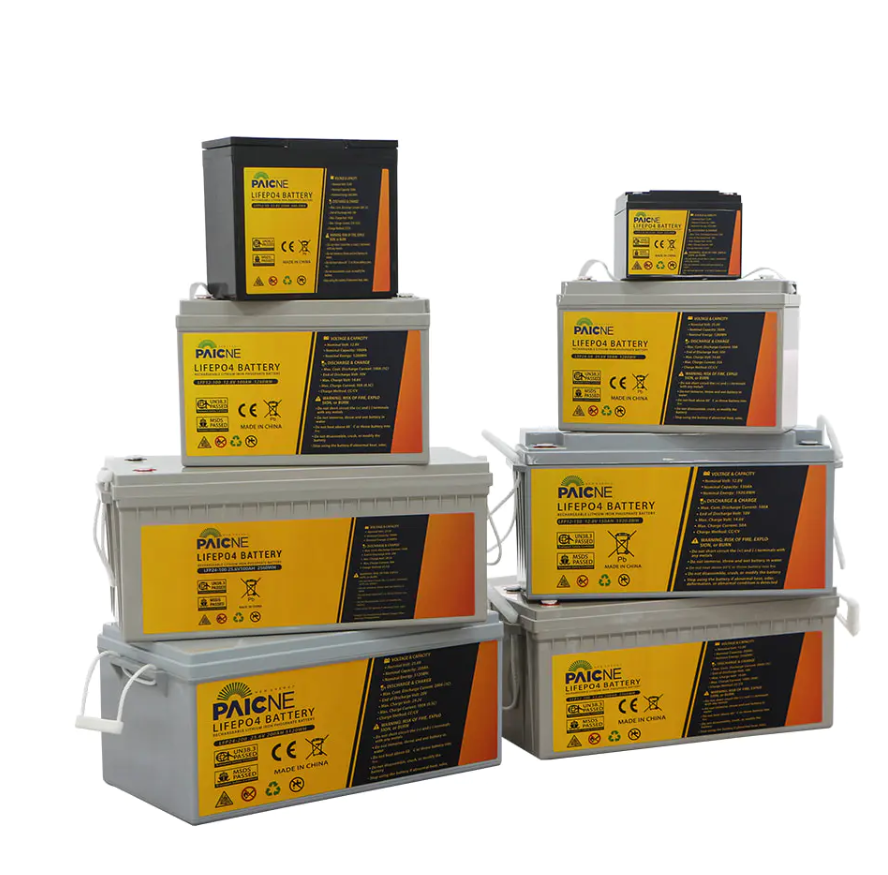Impact of Current Load Variations on Lithium Iron Phosphate Battery Efficiency and Performance

Lithium Iron Phosphate Battery has become widely recognized for its stable performance and reliability under different electrical loads, making it a preferred choice for electric vehicles, energy storage systems, and portable electronics. One of the key factors affecting battery performance is the magnitude of the current load applied during charging or discharging. Understanding how LiFePO4 cells respond to varying currents is crucial for designing systems that maximize efficiency, longevity, and energy utilization.
At low current loads, the Lithium Iron Phosphate Battery exhibits stable voltage output and high efficiency. The battery can deliver energy with minimal voltage drop, maintaining consistent power to connected devices. This ensures that applications requiring a steady energy supply, such as solar energy storage or backup power systems, operate efficiently. Low current operation also minimizes internal heating, reducing stress on the cell and contributing to a longer overall cycle life.
As the current load increases, the battery experiences a slight voltage drop due to internal resistance. LiFePO4 chemistry, however, demonstrates relatively low internal resistance compared to other lithium-ion chemistries, which helps maintain higher voltage under moderate to high loads. This characteristic allows the battery to deliver reliable performance even when powering electric motors, high-drain tools, or other energy-intensive applications. The ability to sustain voltage under high current draw is one of the primary reasons why LiFePO4 batteries are favored in automotive and industrial settings.
Extremely high current loads can lead to increased internal heating, which may temporarily reduce the battery’s effective capacity. In such situations, proper thermal management and battery management systems (BMS) are essential to prevent overheating and maintain safe operation. Despite these challenges, Lithium Iron Phosphate Battery maintains better performance under high current compared to traditional lithium-ion cells, thanks to its stable cathode chemistry and robust cell design. This ensures that the battery continues to deliver usable energy without significant degradation or risk of failure.
Charging under different current levels also affects performance. Fast charging with higher currents can be accommodated by LiFePO4 batteries more safely than many other lithium-ion chemistries due to their low risk of thermal runaway. Moderate charging currents, however, are generally preferred for maximizing cycle life and preserving long-term capacity. Battery management systems monitor charge currents to optimize efficiency, prevent overcharging, and balance cells, which ensures consistent performance regardless of load conditions.
In conclusion, the Lithium Iron Phosphate Battery demonstrates stable and reliable output across a wide range of current loads. Low current operation offers high efficiency and minimal voltage drop, while moderate to high currents are supported with minimal performance loss due to low internal resistance and robust thermal stability. Even under demanding conditions, these batteries provide consistent energy delivery, long cycle life, and safe operation, making them an excellent choice for applications that require both reliability and versatility in varying electrical load conditions.
Features:
1. High energy density: Phosphate iron lithium batteries have a higher energy density, providing longer usage time and higher cruising range.
2. Long cycle life: Phosphate iron lithium batteries have a long cycle life and can withstand more charge and discharge cycles without reducing performance.
3. Good high-temperature performance: Phosphate iron lithium batteries still maintain good performance at high temperatures and are not prone to safety issues such as thermal runaway.
4. Fast charging: Phosphate iron lithium batteries have high charging efficiency and can complete charging in a short time.
5. High safety: Compared to other lithium-ion batteries, phosphate iron lithium batteries have a lower risk of self-ignition and explosion.
- Art
- Causes
- Crafts
- Dance
- Drinks
- Film
- Fitness
- Food
- Jeux
- Gardening
- Health
- Domicile
- Literature
- Music
- Networking
- Autre
- Party
- Religion
- Shopping
- Sports
- Theater
- Wellness


